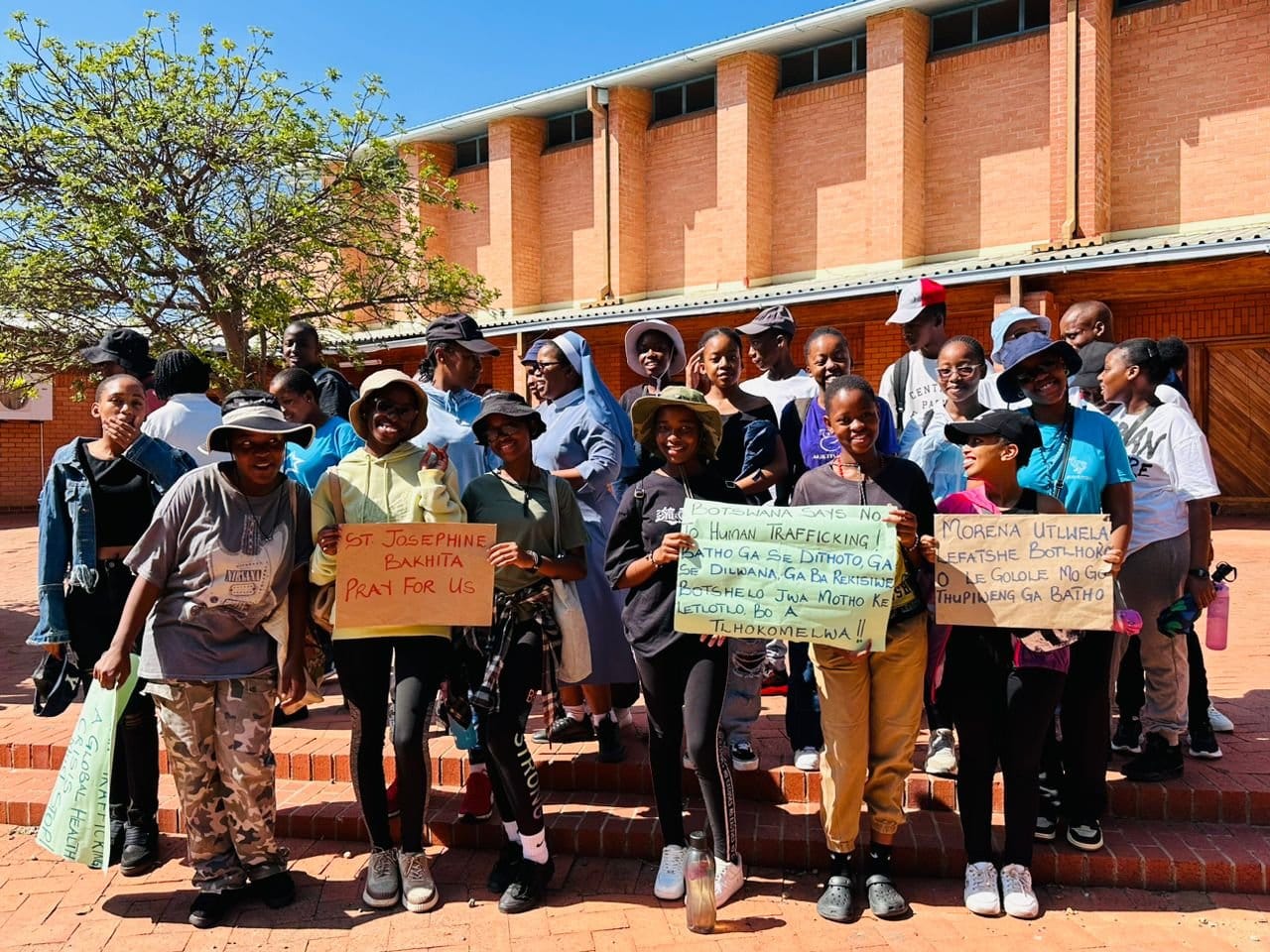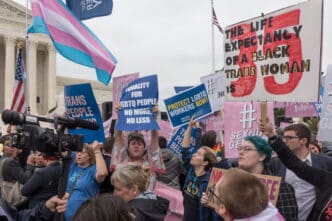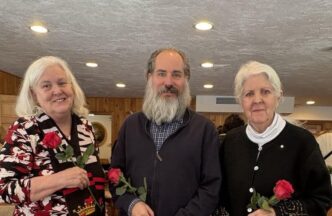YAOUNDE, Cameroon (OSV News) — Marches and Masses in more than 30 African countries were organized Feb. 8 to raise voices against human trafficking, marking the feast day of St. Josephine Bakhita, and kicking off a Jubilee Year campaign “Restoring Hope in Africa: A Jubilee Call to End Human Trafficking.”
Feb. 8 honors the Sudanese-born patron saint of human trafficking victims and serves as a focal point for prayer and awareness activities.
In a powerful display of unity, the Pan-African Catholic Theology and Pastoral Network organized events throughout the continent under the theme “Restoring Hope in Africa: A Jubilee Call to End Human Trafficking.”
The joint International Organization for Migration, International Labor Organization and Walk Free Foundation’s 2022 report estimated that 50 million people were victims of modern slavery in any given day in 2021. Out of these, an estimated 27.6 million people were in situations of forced labor and another 22 million people were in a forced marriage.
A substantial portion of this number originated or passed through Africa, where human trafficking is a real plague.
Sister Yvonne Clémence Bambara, Talitha Kum’s regional coordinator for Africa, told OSV News that it’s believed an estimated 25% of global human trafficking crimes may be taking place in Africa. Talitha Kum is the International Network of Consecrated Life Against Human Trafficking.
Sister Yvonne said the $150 billion-worth trade is driven in Africa by a multiplicity of factors, including poverty, terrorism and conflict, which lead to forced migration, exposing people on the move to physical and sexual exploitation.
A ‘stain on our collective humanity’
“This situation is exacerbated by the influence of foreign powers plundering African countries, slowing down our development agenda and exposing communities to the threat of human trafficking,” she said.
In her keynote address kicking off the Jubilee Year anti-trafficking campaign, Ugandan Vice President Jessica Alupo said trading human beings remains a stain in the collective memory of humanity.
“I call it a stain on our collective humanity because human trafficking does not only indignify its victims. It equally indignifies those who exploit them. It indignifies those responsible for protecting them. It indignifies those who watch it happen but are aloof or choose to play blind, deaf and dumb about it,” Alupo said.
Feb. 8 marches were accompanied by Masses, prayers, meetings with community leaders and elders, as well as awareness campaigns to educate the public about the challenges of human trafficking.
Sister Leonida Katunge, PACTPAN’s director of programs and coordinator of the Feb. 8 campaign told OSV News that Christians from all walks of life, but also Muslims and worshippers of African traditional religions joined the protests.
She said PACTPAN aims to empower survivors by providing them with the necessary support to rebuild their lives.
“We want to reintegrate all men and women who due to human trafficking have been objects of ridicule by their families and the society,” she told OSV News.
Saying ‘no to human trafficking’
She said the Catholic Church, under the leadership of Pope Francis and supported by organizations such as Talitha Kum and PACTPAN, plays a vital role in combating human trafficking.
She explained that Talitha Kum, a global network of Catholic sisters, works against trafficking through prevention, education, rescue and rehabilitation. PACTPAN mobilizes local churches in Africa for advocacy and awareness. In addition, the Symposium of Episcopal Conferences of Africa and Madagascar, supports grassroots initiatives.
Sister Leonida said however that despite joint efforts, the Church faces significant challenges, including having to deal with powerful and corrupt individuals involved in the “lucrative
businesses.” In addition, there is a pervasive culture of silence on the part of the victims, who may be too afraid or too ashamed to speak out, the sister pointed out.
She challenged African governments to take the lead in working to end “this heinous crime,” so that citizens can live in “a free society where each citizen is taken care of.”
“PACTPAN urges the public to recognize the inherent dignity of every individual and to take an active role in preventing exploitation. By working together, communities can create a safer environment for all,” she said.
“Let us all say ‘No’ to human trafficking not only in Africa but in the entire world,” she emphasized.








